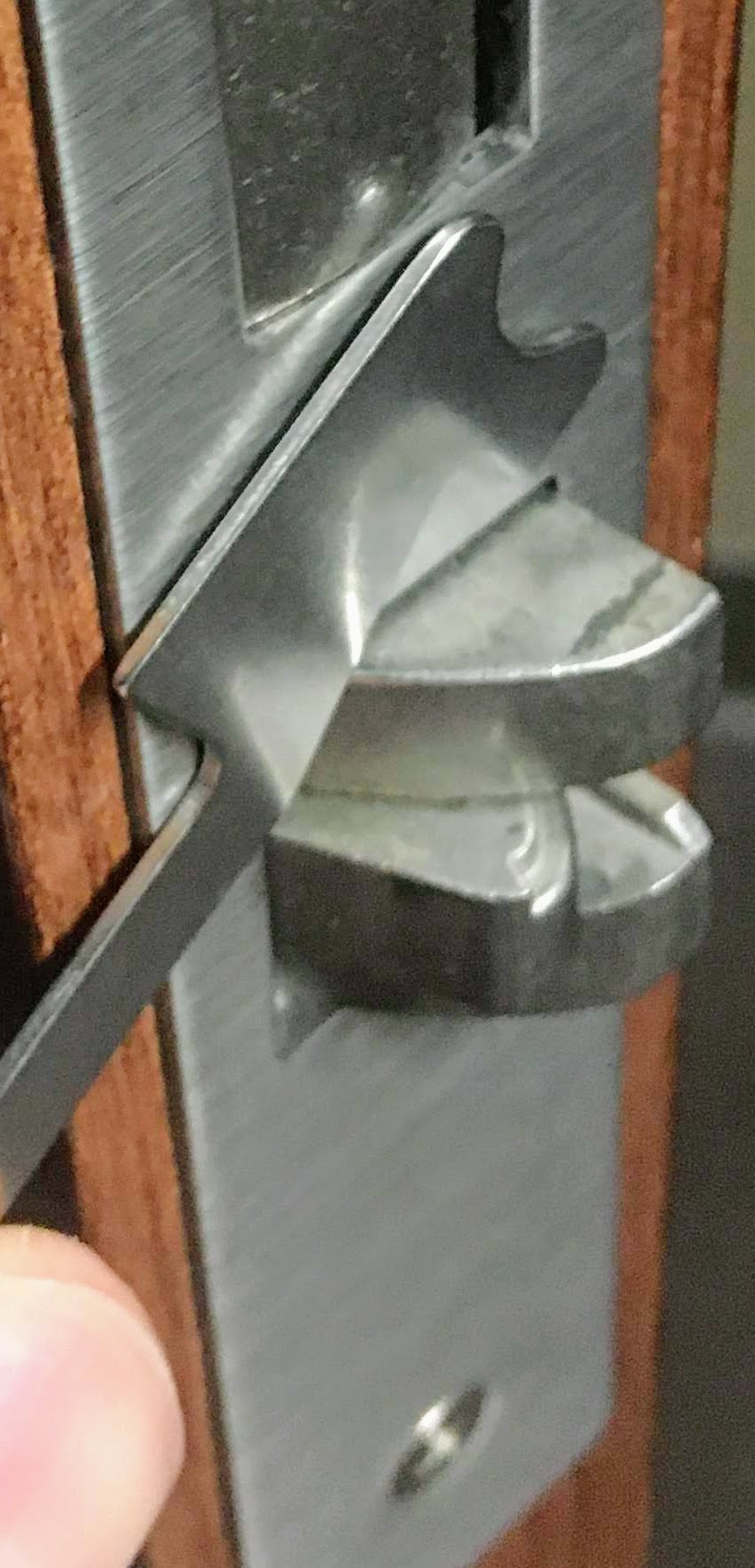
As I’ve mentioned before, I’m a big fan of bypass tools, especially in the context of my line of work. They can be very useful and quite effective when used correctly.
The shove knife is of particular note, as it is probably the most common and most effective of the bypass tools available (with some variants I’ll note).
They’re used to bypass latches – first a quick primer on latches.
Many security focused latches have what’s called a dead latch, or an anti-loiding pin. They can take many forms, but as an example I’ll use one you probably have in your home.
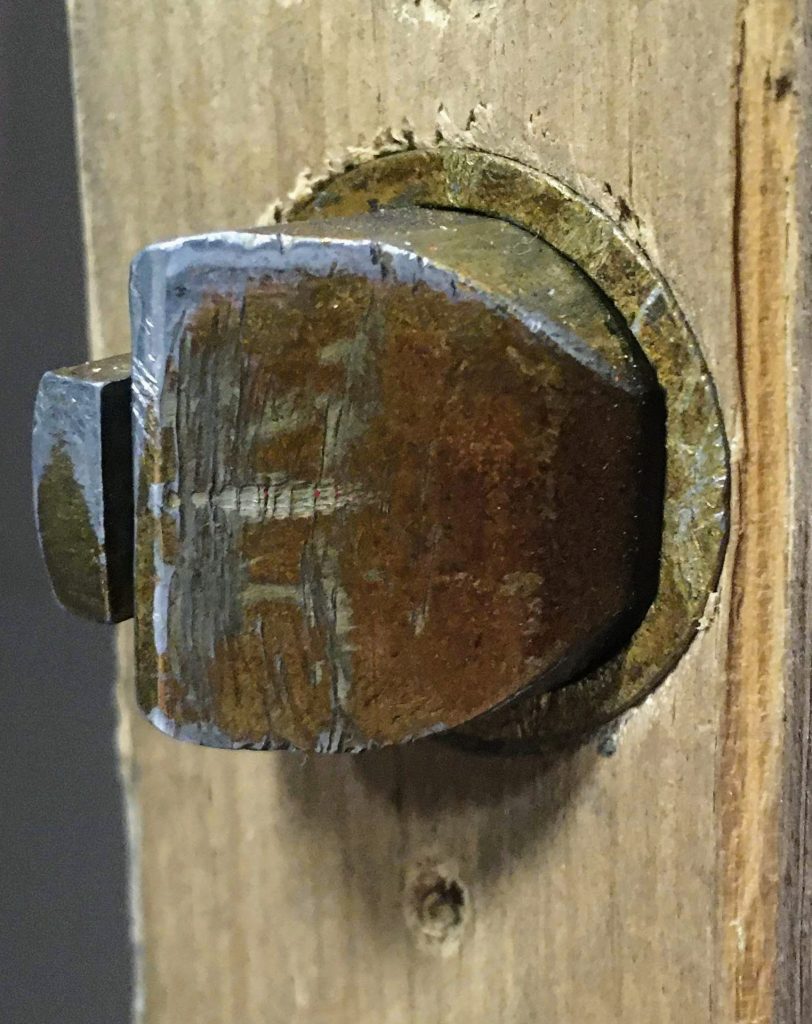
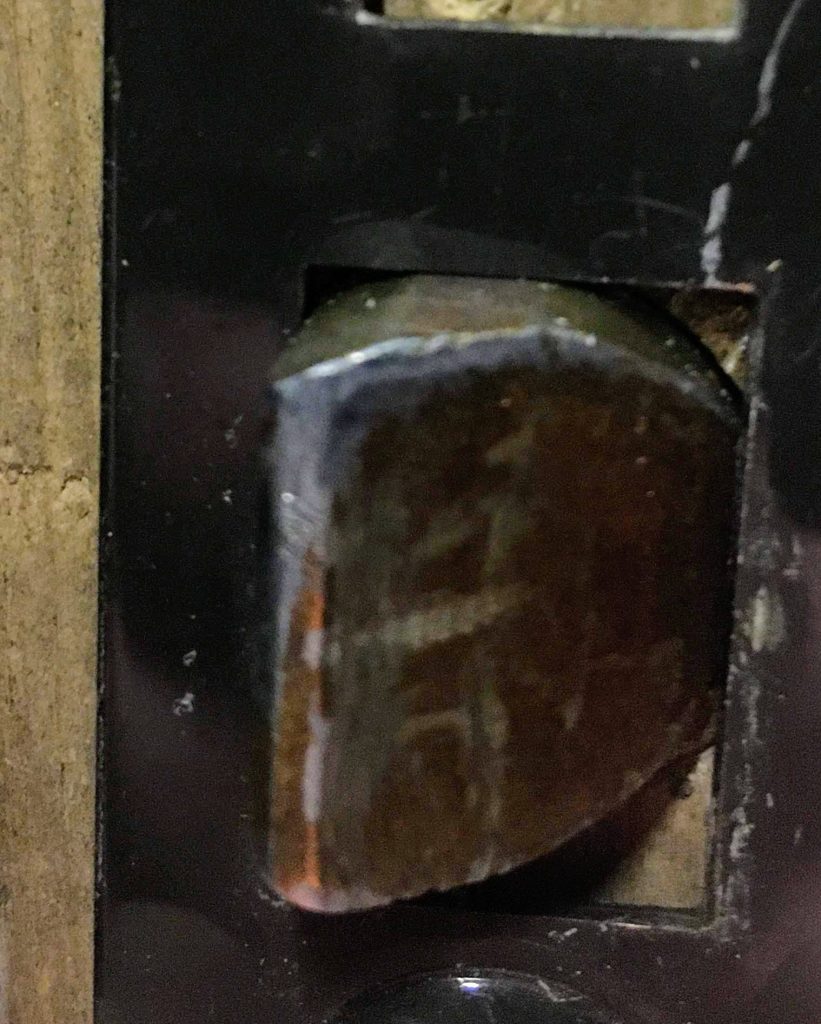
See that little guy on the left? That’s the pin in question. When properly installed (right) the strike plate depresses that pin, which in turn activates some internal mechanics that keeps the main latch from being depressed externally… like with a shove knife.
Pins like these are why you see a little wedge in with my shove knife; if you create a big enough gap between the door and the frame, you can often disengage the pin, if you know what you’re doing, allowing you to use your shove knife:
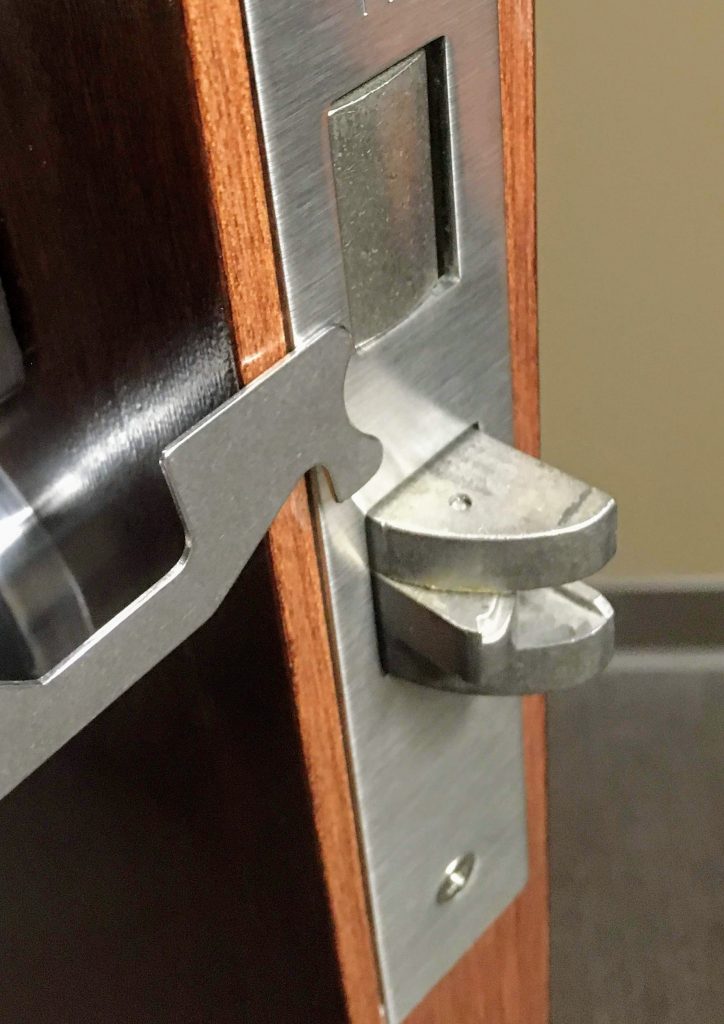
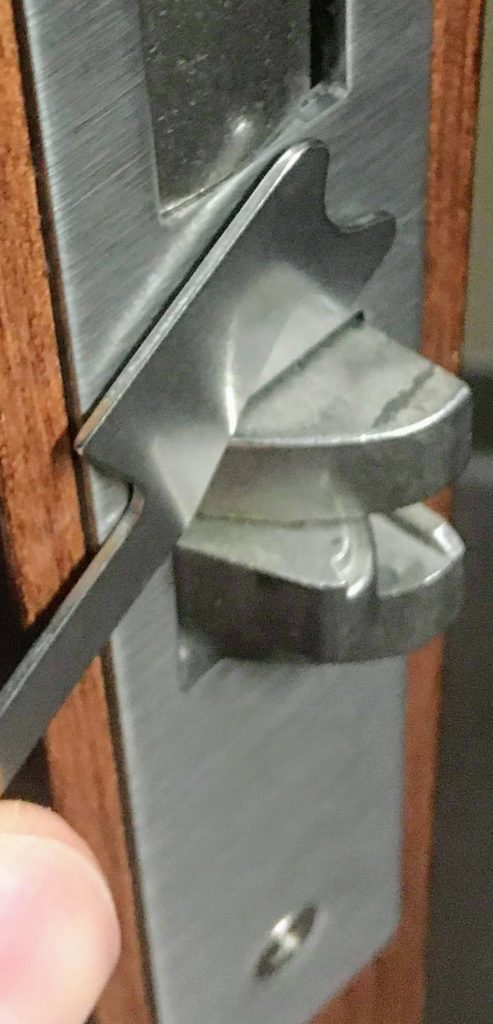
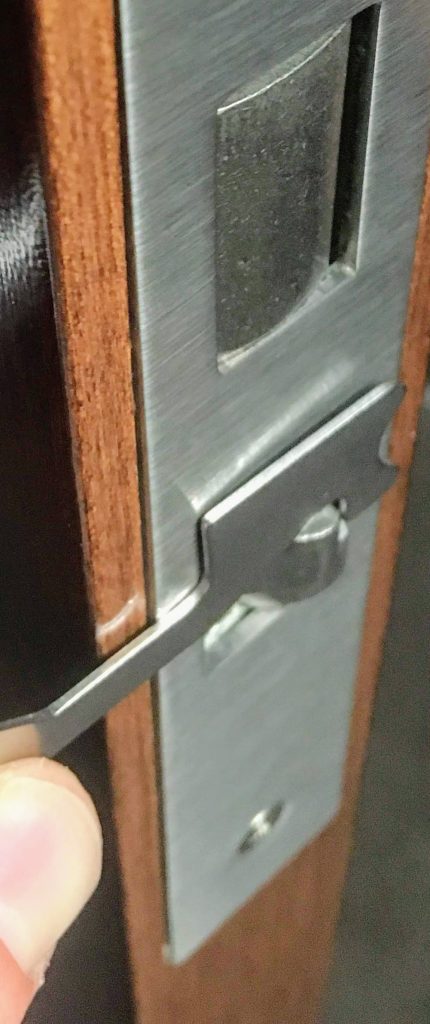
There are a lot of subtleties to using a shove knife, and there are plenty of situations where a “J” tool or a shim would be better suited to the job, but I’ll leave it there for now – check your locks at home, you may be surprised to learn that their dead latches are not in fact properly engaged, and I’d encourage you to fix that. This is where the old “credit card” trick for opening doors comes from, for those familiar.
-T